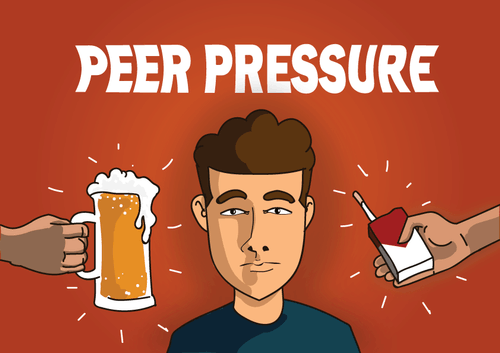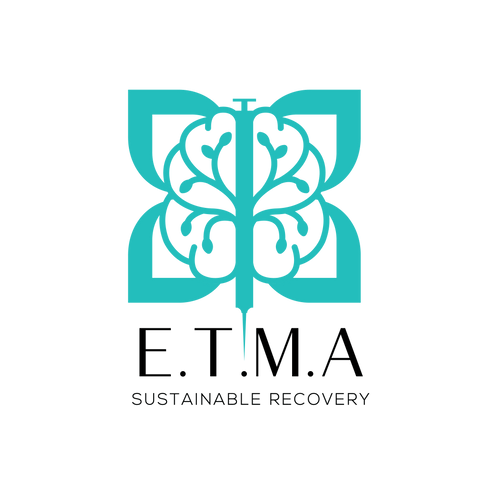Peer Pressure: The Gateway to Addiction

What Is Peer Pressure?
Peer pressure is when people your age, who share similar backgrounds or social status, influence you to adopt certain behaviors, attitudes, or values. This influence can be direct, like someone persuading or pressuring you, or indirect when you observe and imitate others in your social circle. It happens in different places, such as school, work, social events, and online interactions.
Pressure here refers to any stimuli that push the addict towards an addiction. It could be that a family member or friend was abusing substances and steered the addict towards it. Or it could be the absence of care provided by loved ones who were not aware of what was happening to their loved ones. This could lead to unaddressed trauma.
Types Of Peer Pressure
Peer pressure can take various forms, including:
Direct Pressure:
This involves explicit requests, demands, or encouragement from peers to engage in certain behaviors or activities. For example, friends might directly ask you to try a cigarette or skip class.
Indirect Pressure:
Indirect peer pressure is more subtle and involves feeling influenced by observing others’ behaviors or attitudes. For instance, seeing your friends all wearing a particular brand of clothing might make you feel pressured to do the same.
Social Acceptance:
The desire to fit in and be accepted by your peer group can lead to conforming to their behaviors or beliefs, even if you don’t personally agree with them. This pressure can be powerful, as individuals may fear rejection or social isolation if they don’t comply.
Unspoken Expectations:
Sometimes, peer pressure is conveyed through unspoken expectations within a social group. For example, if everyone in your friend circle is focused on academic achievement, you might feel pressured to prioritize studying over other activities.
Cyber Peer Pressure:
With the rise of social media and online interactions, peer pressure can also manifest through digital platforms. Seeing peers posting about certain activities or lifestyles online can influence others to conform to those norms.
Positive Peer Pressure:
Not all peer pressure is negative. Positive peer pressure can encourage individuals to make healthy choices or engage in constructive behaviors. For example, friends encouraging each other to participate in sports or volunteer work can be considered positive peer pressure.
Sources Of Peer Pressure
Peer pressure can stem from various sources, including:
- Friends
- Family
- Classmates
- Social Media
- Media and Advertising
- Community or Cultural Expectations
- Online Communities
- Authority Figures
How Is Peer Pressure A Gateway To Addiction
There are numerous factors contributing to how peer pressure can lead to addiction. Some of these factors include:
Social Learning Theory:
Humans are inherently social creatures and learn from observing others. This can lead to the adoption of addictive behaviors if peers or family members engage in them. Additionally, the perception of certain behaviors as cool or stress-relieving can further influence individuals to try drugs or addictive behaviors.
Curiosity:
Addicts may initially be drawn to addiction out of curiosity, wanting to experience what it feels like to engage in addictive behaviors. Being in environments where others are using or drinking can intensify this curiosity and pressure individuals into addiction.
Sense of Belonging and Low Self-Esteem:
Codependency is a condition by which people depend on others for their sense of esteem. Individuals with low self-esteem may seek validation from others, leading them to join in addictive behaviors to feel accepted or belong to a certain social group. Addiction can become a way to medicate feelings of inadequacy and gain a sense of belonging.
Addiction by Force:
In some cases, individuals may be coerced or forced into addiction by peers or family members, often as a result of power dynamics or violent consequences if they refuse.
Perceived Normality:
If a group considers addictive behaviors as normal or commonplace, individuals may feel pressure to conform to this perceived norm to avoid feeling abnormal or ostracized. Hence, addiction is a disease of perception because in reality, taking drugs/alcohol/engaging in addiction is abnormal. In normal reality, people tackle their problems head-on. They do not run away from it. And by doing so, receive a natural high in life.

